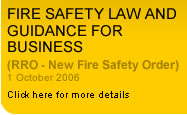Once the bonfire has died down, spray the embers with water to stop it from reigniting.
Preparation is key to enjoying fireworks safely, so:
- Refrain from purchasing fireworks from untrustworthy sources such as a van or a temporary, unlicensed market stall.
- Only acquire fireworks that are marked BS 7114. This is the British Standard that all fireworks must meet; a reputable shop should be aware of this.
- Always follow the instructions provided with each firework. Read them in daylight or by torchlight but never by a naked flame.
- If you plan to launch Catherine wheels or rockets, make sure to create suitable supports and launchers.
It’s easy to get a few household things together; these are:
- a closed metal box to store the fireworks – take them out one at a time
- a bucket of water – to cool sparklers and put out any small fires
- eye protection and gloves
- a bucket of the earth to stick fireworks in
Follow these simple guidelines to stay safe:
- Designate only one individual to be responsible for igniting the fireworks.
- Avoid consuming alcohol if you are the one handling the fireworks.
- Light the fireworks using a taper while keeping your arm extended.
- Ensure that everyone stands at a safe distance away from the fireworks.
- Never return to a firework that has already been lit. Even if it has not gone off, there is still a risk of it exploding.
Sparklers are fun, but always:
- Always supervise children while they are handling sparklers, and do not give them to children under five years of age.
- Light sparklers individually and wear gloves when doing so.
- After the sparkler has been used, put it into a bucket of sand or water with the hot end facing downwards.
There are laws about when fireworks can be sold and to who – as well as the time’s fireworks can be set off.
If you are under 18, you can’t:
- buy the types of fireworks which can be sold only to adults
- have fireworks in public places
If you do, the police can give you an on-the-spot fine of £80.
It is against the law to:
- set off or throw fireworks in the street or other public place
- set off fireworks between 11.00 pm and 7.00 am – except during certain celebrations
If convicted by a court of law, you may face a fine of up to £5,000 and a prison sentence of up to three months. Additionally, you could be subject to an on-the-spot fine of £80.
Fireworks for private use and from a registered seller can only be sold:
- between 15 October and 10 November – around Bonfire Night
- between 26 December and 31 December – for New Year’s Eve
- three days before Diwali and Chinese New Year
For the rest of the year, you will only be able to buy fireworks from shops that are licensed to supply them.
If you suspect that a shop is unregistered or selling fireworks illegally, you should contact your council’s Trading Standards Officer. Your council should also have a list of authorized sellers.
Animals and pets
It is against the law to cause unnecessary suffering to any domestic or captive animal. The penalty if found guilty is either imprisonment up to 51 weeks, a fine of up to £20,000, or both.
Animal firework safety information from the RSPCA Opens a new window
Animal welfare and advice – including how to report animal cruelty
Firework displays for the general public
If you are organizing a firework display for the general public, see ‘Organising a firework display’ for advice on how to run it safely and successfully.
Organizing a firework display
HOW TO REDUCE THE RISK OF WILDFIRES
Although the risk of a wildfire starting is increased during the summer due to dry ground conditions, it is essential to exercise caution throughout the year. To minimize the risk of a countryside wildfire, adhere to the following guidelines:
- Ensure cigarettes are extinguished correctly and do not discard cigarette butts on the ground. Dispose of them in a trash can.
- Never throw cigarette butts out of car windows.
- Avoid using open fires while in the countryside.
- Do not leave bottles or glass in woodland areas, as the sun’s rays passing through the glass can start fires. Take them home and recycle them.
- Only use barbecues in designated and safe areas; do not leave them unattended.
- If you notice a fire in the countryside, alert the fire and rescue service immediately.
- Do not attempt to put out fires that cannot be extinguished with a bucket of water. Leave the area as soon as possible.
BARBECUE SAFETY
Whether you are in the garden or out camping, follow these simple tips to barbecue safely and avoid injuries or damage to property from fire:
- make sure your barbecue site is flat and away from fences, trees and sheds
- keep a bucket of water or a garden hose nearby, in case of emergencies
- use only enough charcoal to cover the base of the barbecue to a depth of about 5 centimetres (2 inches)
- never use petrol or paraffin to start, or revive your barbecue – use only barbecue fire lighters or starter fuel on cold coals
- keep children and pets away from the cooking area
- don’t leave the barbecue unattended
- enjoy yourself – but don’t drink too much if you are in charge of a barbecue
- after cooking, make sure the barbecue is cool before trying to move it
- empty ashes on to bare soil, not into a bin
Gas barbecues – additional tips
Follow these extra tips if you are using a gas barbecue:
- make sure your barbecue is in good working order
- make sure the tap is off before changing the gas cylinder, and do it in the open air
- don’t over-tighten joints
- when you have finished cooking, turn off the gas cylinder before you turn off the barbecue controls – this means any gas in the pipeline will be used up
- read the manufacturer’s instructions about how to check for leaks in the cylinder or pipework, eg, brushing soapy water around all joints and looking for bubbles
Storing gas cylinders
Don’t keep more cylinders than you need. Gas cylinders should be kept outside, away from direct sunlight and frost. If you have to keep them inside your house, make sure you don’t store them under the stairs. If there is a fire, they could explode, and the stairs are likely to be your escape route.
CAMPING SAFETY
When you are going camping, follow these basic precautions to reduce the risk of a fire starting and spreading:
- Prior to departing, obtain the contact information for the local fire and rescue service.
- When pitching tents, ensure they are at least six meters apart from each other and away from parked cars.
- Make sure you are aware of the fire safety protocols in place at the campsite, as well as the location of the nearest telephone.
- Refrain from using oil-burning devices, such as candles or lanterns, inside or in close proximity to a tent. Torches are a safer alternative.
- Do not smoke inside a tent.
- Position your cooking area a safe distance away from your tent.
- Keep your cooking area clear of flammable items, including long, dry grass.
- Place cooking appliances in a location where they cannot easily be knocked over.
- Keep matches, lighters, flammable liquids, and gas cylinders out of reach of children.
- Have an emergency evacuation plan in place, and be prepared to cut your way out of the tent in the event of a fire.
How to deal with fire when camping
Remember these two simple tips:
- Get everyone out straight away – fires in tents spread very quickly
- Call the fire and rescue service and give a map reference if possible – provide a landmark, like a farm or a pub, to help them find you.





